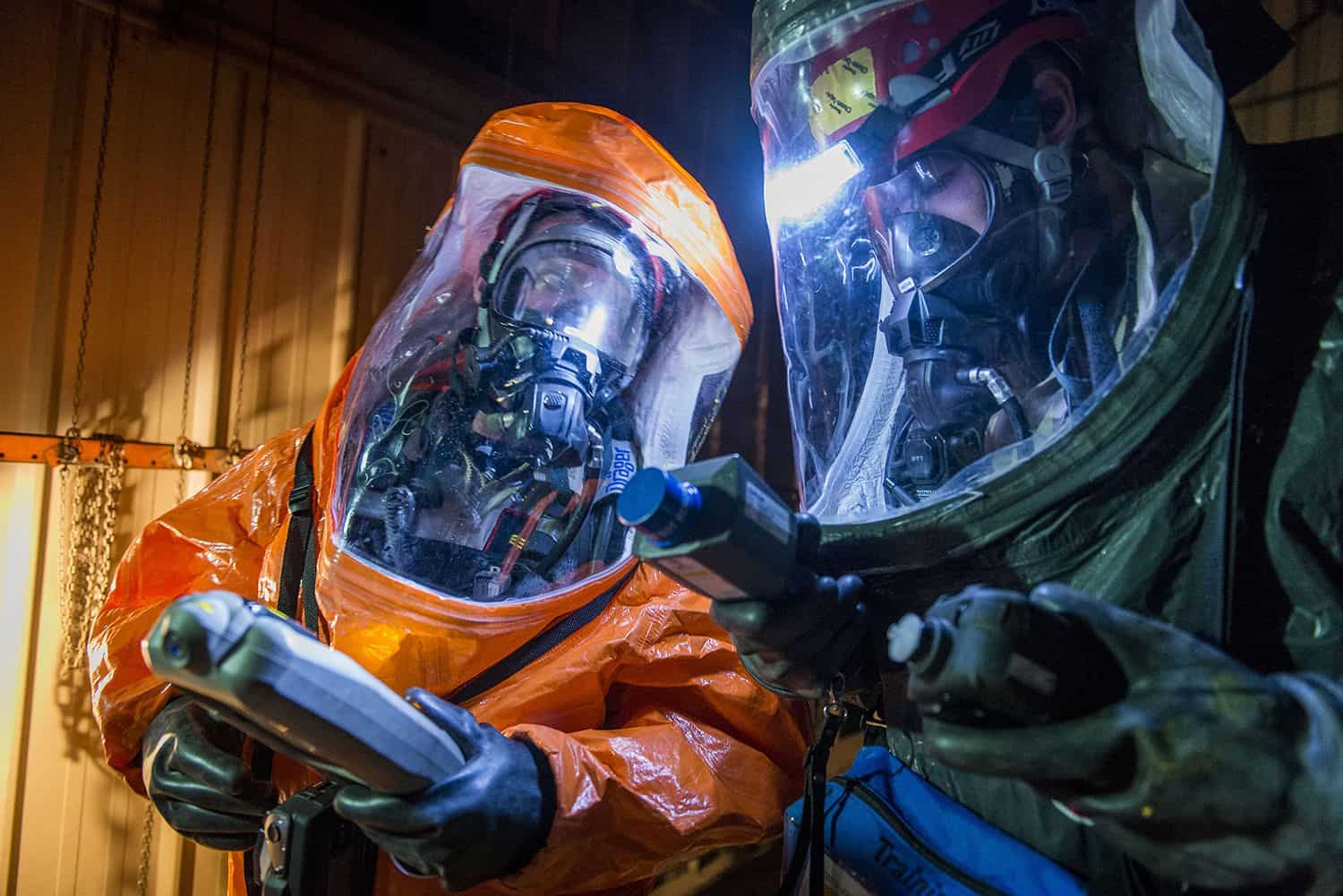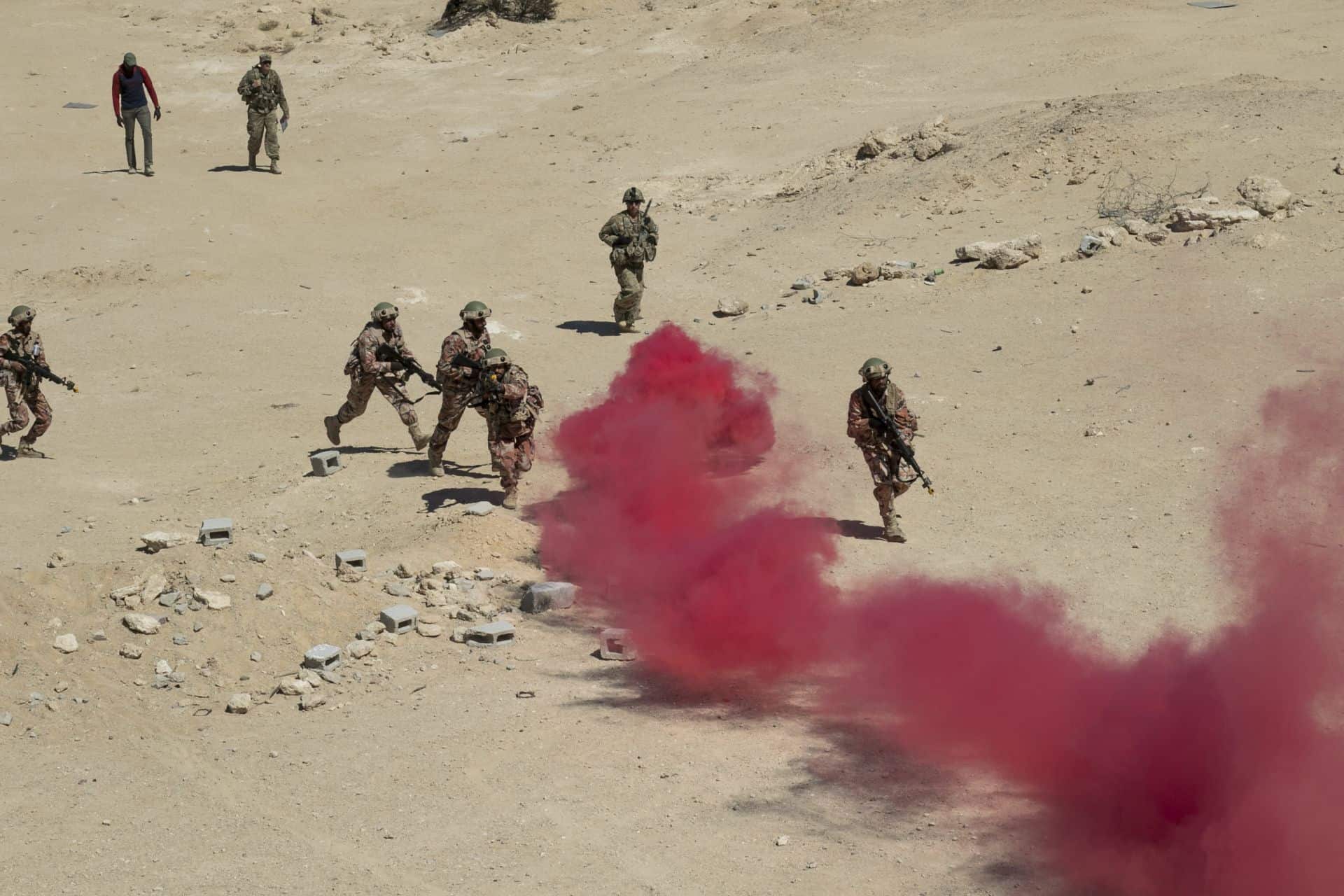DUGWAY PROVING GROUND, Utah: Helping to keep Soldiers, first responders and populations safe from chemical and biological agents is an effort that requires early detection and identification, correct sampling and decontamination methods taught by a team of experts willing to train response teams anywhere in the world.
Tony Kemp and Wendell Williams are seasoned program managers who lead Mobile Training Teams from Special Programs Division at U.S. Army Dugway Providing Ground, Utah, providing comprehensive chemical and biological field training exercises, demonstrations, laboratory instruction and briefings for military units, emergency first responders and allied partners around the globe.
MTTs usually have two to six members. The average training exercise length is five days. Complex training scenarios can require two or more weeks, contingent on the location and the size of the team and the goals of the requester.
“During the past 17 years, we have conducted hundreds of scenarios and offered everything from small scale chemical and biological targets for large military exercise support, to simple subject briefs and training at conferences,” Williams said. “It’s not unusual for program managers to lead three or four teams.”
Preparation is key to a successful training event, both men agreed. They have been asked to provide chemical or biological target setups for recon teams and specific briefings for commanders and their support staffs within a unit.
Dugway’s mobile trainers know that their training will save lives. They are preparing civil support responders with the skills, response measures and the ability to project the consequences of a chemical or biological incident anywhere they might be required to work with external agencies or organizations.
MTTs were established to teach response teams the skills to assist a local incident commander in determining the nature and extent of an attack or incident. They often train the trainers as they provide expert technical advice on a chemical or biological response operations and help identify and support the arrival of follow-on state and federal military response personnel.
They are a key element in meeting the Department of Defense’s overall program to provide support to military and civil authorities in the event of an incident involving weapons of mass destruction in the United States. MTTs provide essential training for WMD Civil Support Teams from various state Army National Guard units.
Training is developed with advanced and accurate detail to ensure attendees receive the latest tactics and techniques for chemical and biological response, identification, detection, sampling, production signatures and decontamination procedures using a mobile laboratory for field analysis.
Kemp and Williams believe it’s about tailoring the training to the customer’s specific requirements, emphasizing that it’s crucial that every individual attending be able to confidently respond to real world chemical or biological incident at the end of their training.
“If the physical area is small, there is just so much we as a team can build,” Kemp said. But he also knows the MTT is inventive and trained to find solutions. “If a briefing is all that is required, there is really no limit on how many can attend, within reason.”
It’s not unusual to have several teams from Dugway fielded at the same a time. Recently, Kemp took his team to Germany while Williams’ team was training warfighters in South Korea.
“If there is a threat that comes to the front of the battlefield, the customer always wants to learn more about that threat,” Kemp said. “Seeing the warfighter learn new information and practice their skills is so rewarding, it’s the ‘ah ha’ moment, when it really all makes sense.”
“There’s a lot of pride in what we do as trainers,” Williams agrees. “There are a lot of cases where our teams are the only way for units to receive the chemical, biological and the explosive ordinance expertise they require. Being told at the end of every single course that it was the best training they have ever received is a good feeling.”











